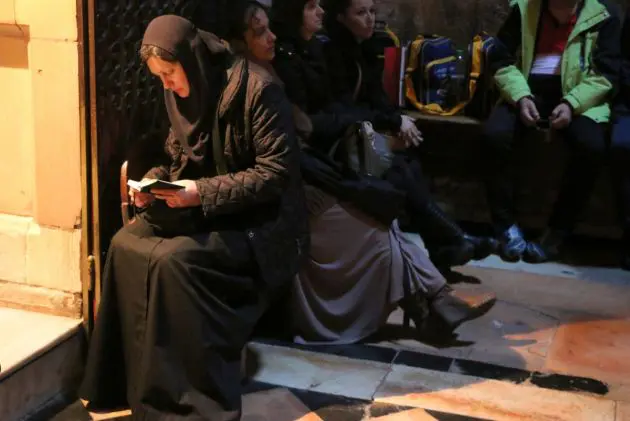Christians living in the Holy Land are a community with a highly vulnerable future as they are challenged by violence, migration, and a lack of investment as community that is highly underestimated, a new study shows.
Researchers discovered that the Christian community in Israel, Jordan and Palestine makes a wide-ranging contribution to building civil society, new start-ups, excellence in education and in health and other humanitarian sectors, the UK’s University of Birmingham said.
The $3 billion economic contribution made by Christian communities to Israel and surrounding regions remains under “grave threat,” the report said according The Tablet.
One of the report’s suggestions is the creation of “high tech start up hubs” to encourage and coordinate international investment amongst Christians living in the Holy Land.
A combination of philanthropic resources and other investments, especially in “humanitarian” fields such as education and health, brings the total benefit to the region’s economy from its Christian communities to $3 billion.
Christian tourism in the region provides over $3 billion to the economy of Israel alone, with Christians comprising 53 percent of incoming tourism flights.
The researchers also found major concerns that, especially in Israel, an unfair visa system and lack of benefits may undermine recruitment and retention of clergy that the churches need to continue building the communities and life of the Holy Land.
“Christianity in the Holy Land is globally and diplomatically significant because of its position at the heart of the region, but its economic, social and civic value for the people of the Holy Land have been massively underestimated,” said Prof. Francis Davis from the University of Birmingham’s Edward Cadbury Center.
CHRISTIANITY DWARFED
Christianity is dwarfed by other religious groups with only around 50,000 in Palestine, dwindling over recent years, about 150,000 in Israel and 250,000 in Jordan.
Christianity in the region has a unique public and diplomatic significance, the authors said.
The Birmingham University experts worked with counterparts at the International Community of the Holy Sepulchre (ICoHS) and published their findings in the report “Defeating Minority Exclusion and Unlocking Potential: Christianity in the Holy Land.”
The experts found that Christians reported mistreatment on religious grounds and feel threatened by abusive behaviour.
Examples of this are increasing grievance among Palestinian Muslims that increased the risk of verbal and physical attacks against minority Palestinian Christian communities.
Davis said the contribution is disproportionate to the size of Christian communities.
“Yet they are at grave risk from war, inter-religious and ethnic conflict, constraints on international investment and fears of economic and legal constraint provoked by migration,” he said.
“Their future is more vulnerable than it needs to be.”
The report makes several recommendations, including further research into the cultural, economic, and civic contribution of Palestinian Christians.
It also supports a new program of education, briefing and information to increase understanding and engagement with the Christian communities.
The report calls for meetings of religious, government and civil society organisations to explore how to reduce attacks on Christian communities.
In the UK it calls for ongoing international legislative scrutiny; and exploring with the Israeli government how it can regularly publish departmental performance data relating to Christian communities.






